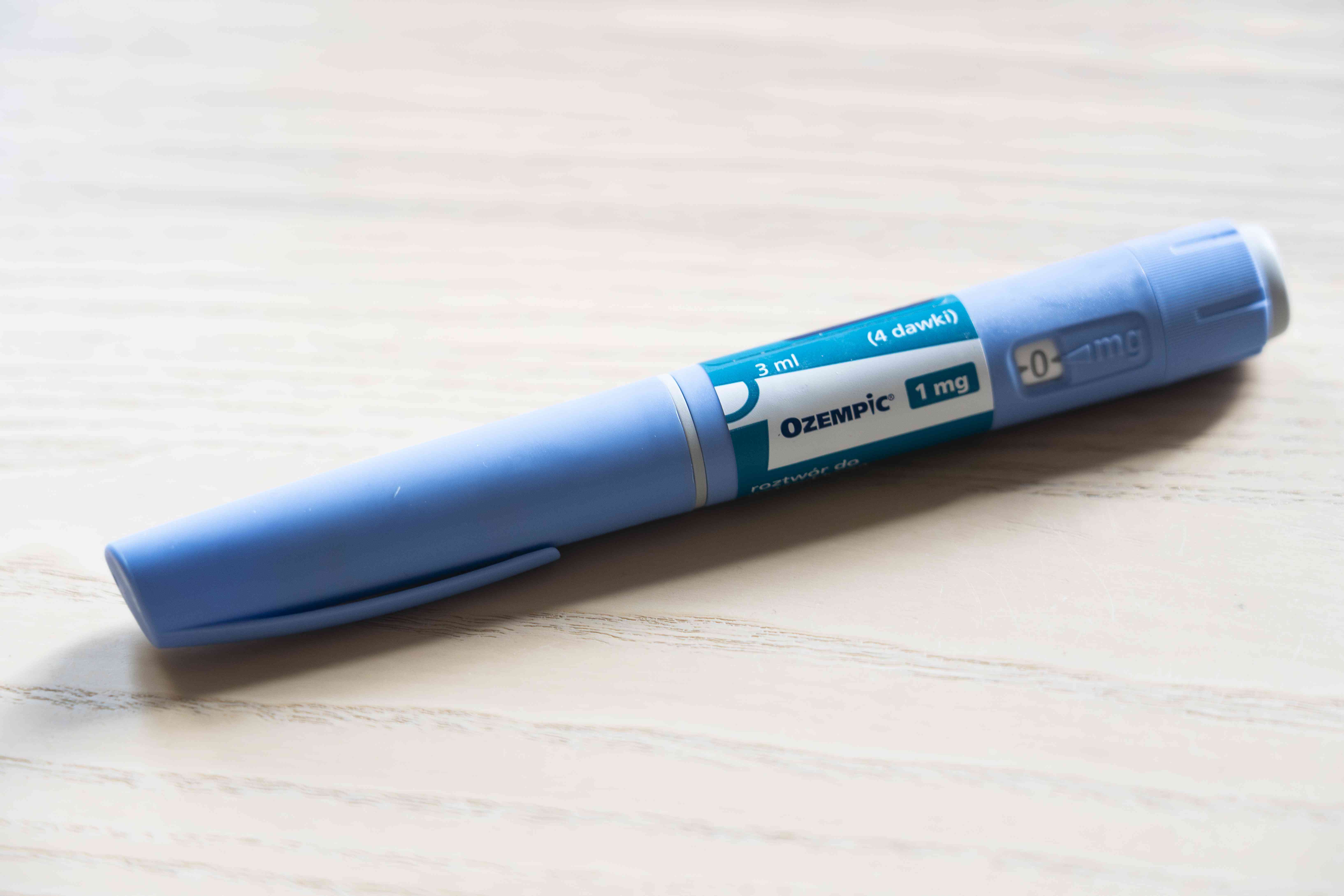Are You Eligible for Ozempic? New Study Suggests Over Half of U.S. Adults Qualify adults—are eligible for semaglutide therapy

New research has found that nearly 137 million adults—or more than half of all U.S

NurPhoto / Contributor / Getty Images
- New research found that 137 million Americans are now eligible to take semaglutide, sold under the brand names Ozempic, Wegovy, and Rybelsus.
- Semaglutide is a drug that’s prescribed to treat type 2 diabetes and to help with weight management for people with obesity or overweight.
- If you’re interested in semaglutide, speak to a physician about whether you qualify to take the drug.
New research has found that nearly 137 million—or more than half—of adults in the United States are eligible to take type 2 diabetes and weight loss drug semaglutide, sold under the brand names Ozempic, Wegovy, and Rybelsus.
The amount of people who qualify for semaglutide exceeds the number of people—roughly 82 million—eligible for statins, the cholesterol-lowering medications prescribed for adults more often than any other drug in the U.S.
In 2023, doctors prescribed semaglutide, a drug in a class called glucagon-like peptide-1 (GLP-1) receptor agonists, to as many as five million Americans.
“The semaglutide eligibility numbers are staggering and mean that we are likely to see large increases in spending on semaglutide and GLP-1 medications,” Ivy Shi, MD, MBA, resident in Internal Medicine at Beth Israel Deaconess Medical Center and first author of the study, told Health.
“Prioritizing equitable access to these effective but high-cost medications, as well as supporting individuals so that they can stay on the therapy long-term, is important,” she said.
Finding Widespread Eligibility
While semaglutide has soared in popularity in recent years, cost remains a barrier to access. In the United States, one month of Ozempic (1.0 mg dose) costs about $900, while Wegovy (2.4 mg dose) costs about $1,350. Insurance companies don’t always cover the costs of these drugs.
Given this major barrier to access, Shi said that she and her colleague, Dhruv S. Kazi, wanted to “evaluate population-level eligibility and better understand potential implications for federal health spending.”
To accomplish this, the pair examined the inclusion and exclusion criteria for clinical trials included in the National Health and Nutrition Examination Survey, a long-term program of studies designed to assess the health and nutritional status of U.S. residents.
Their analysis revealed that 8,504 of 25,531 survey participants were eligible to take semaglutide. When they extrapolated this to the general population, they estimated that almost 137 million adults would qualify to take the drug. The mean age of those eligible is about 50, and about half are women.
Researchers noted that rising rates of obesity and its complications, including type 2 diabetes, have steadily risen over the past few years, leading more people to become candidates for semaglutide.
They also concluded that widespread eligibility is higher than that of widely popular statins, prescribed to lower cholesterol.
That’s not entirely surprising, said Eliud Sifonte, MD, a clinical assistant professor specializing in endocrinology at the Department of Medicine at NYU Grossman School of Medicine. “Not all individuals with excess adiposity suffer from elevated cholesterol levels,” Sifonte told Health. “Thus, the amount of people eligible for weight loss drugs naturally exceeds the amount of individuals requiring statin therapy.”
According to Shi, there’s still much more to uncover about semaglutide eligibility and its potential impact on public health. “There’s rapidly emerging data about semaglutide’s effectiveness for other health conditions such as chronic kidney disease and some types of heart failure, which will likely expand its use in coming years,” Shi said.
She hopes that revealing the extent of the population that can benefit from these drugs will lead to greater, more equitable access.
Do You Qualify for Semaglutide?
The new research may have you wondering whether you’re one of the millions of people who would qualify to take the prescription drugs Wegovy and Ozempic, both of which require weekly injections. Rybelsus, the other drug containing semaglutide, is a once-daily tablet.
The FDA has approved these medications to help with a few conditions. Ozempic and Rybelsus have been given the go-ahead to treat type 2 diabetes, while Wegovy has been approved for weight management. Ozempic and Wegovy also got the green light to be prescribed to lower the risk of cardiovascular death, heart attack, and stroke in adults with cardiovascular disease.
While Ozempic hasn’t been approved for obesity management, doctors often prescribe it off-label—a legal and common practice—for that purpose. Before prescribing it, they may consider the same criteria as they would when signing off on a Wegovy prescription.
That means looking at body mass index, a calculation of weight in relation to height. You may be eligible if you:
- Have a BMI of 30 or more
- Have a BMI between 27 and 29 alongside an obesity-related condition like hypertension or dyslipidemia
The drugs aren’t a good option for everyone, however. To qualify for a prescription, you must be 12 or older (18 or older for Rybelsus, per semaglutide manufacturer Novo Nordisk) and, of course, not allergic to semaglutide or other drug ingredients.
According to Novo Nordisk, you should also steer clear of the three medications if you have a family history of medullary thyroid carcinoma, a cancer of the thyroid gland, or have multiple endocrine neoplasia syndrome type 2, which is a rare hereditary disorder of the endocrine system. It’s also not recommended that people who live with diabetic retinopathy or pancreatic and kidney problems take Ozempic.
If you’re interested in semaglutide, experts advise speaking to a medical professional. Ultimately, your doctor will make the call as to whether you’re eligible for the drug.
This story originally appeared on: Health News - Author:Lauryn Higgins


















